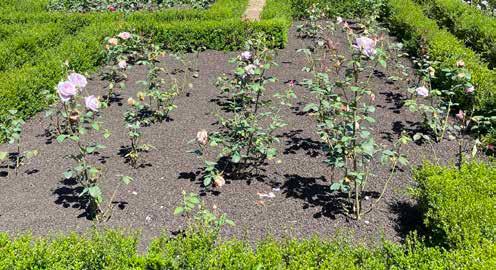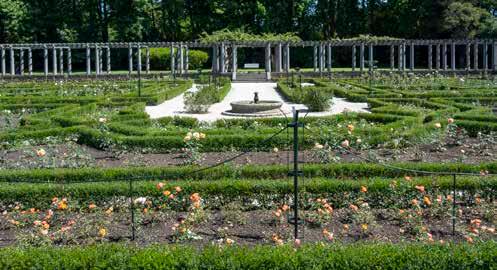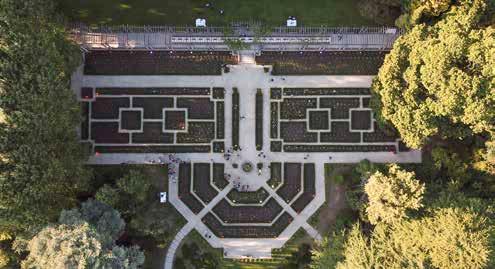
1 minute read
Serralves Rose Garden protected by cork
© NVSTUDIO

© NVSTUDIO Serralves rose garden has a total of 1862 rose bushes, with 29 different varieties, whose growth is now protected by black granules supplied by Amorim Cork Insulation. The granules were chosen by the English landscape architect Gerald Luckhurst who, in partnership with Serralves Park’s management team, coordinated the renovation project of Serralves rose garden. Almost a century after it opened, and after four years of meticulous, dedicated and intense restoration work, conducted by 11 gardeners, one of Portugal’s largest rose gardens has been reborn. The underlying idea was to discover a “mush” that would reduce the impact of fungi on the rose bushes, while preventing the growth of weeds. The black granules supplied by Amorim Cork Insulation - Corticeira Amorim’s insulation cork business unit - respond to this challenge. In addition to retaining moisture they also offer mechanical functions. This is a natural, organic and sustainable solution, capable of providing a better response to the problems of climate change, carbon sequestration and sustainability. Gerald Luckhurst described it as a “practically inert material that is difficult to decompose and is resistant to fungi”. This innovative alternative solution endows the rose garden with “a feeling from the 1930s and 1940s, when it was originally built, but technically evolved for the 21st century», explains the director of Serralves Park, Ricardo Bravo. The project for the 18-hectare Serralves Park dates from the early 20th century, designed by the French architect, Jacques Gréber. It includes woodlands, rolling lawns and about 200 types of different plants. It is classified as one of the world’s 250 most remarkable gardens in the book «The Gardener’s Garden» by Phaidon Press. Serralves rose garden, that occupies an area of 2490 m2, harbours various species of roses, such as «Charles de Gaulle», «Mildred Scheel», «Chevy Chase», «Beautiful Portuguese» or «Santa Teresinha». The latter is widely cultivated in Portuguese gardens.











